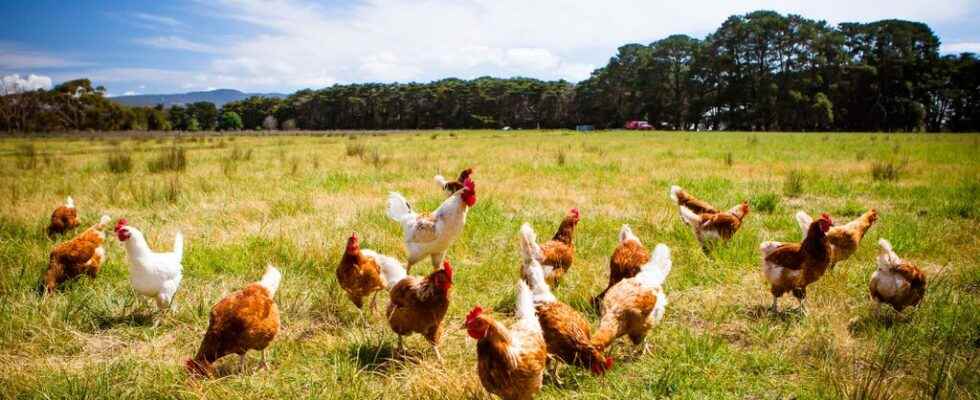Organic milk and eggs contain more PCBs and dioxins than those from the conventional sector, reveals a survey of 60 million consumers who peeled 130 organic food products.
The sector of organic foodhas never been so well. In 2018, more than 9 in 10 French people declared having consumed organic products and nearly 3 in 4 French people eat organic regularly (at least once a month), according to Agence bio. A question arises: are all organic foods necessarily healthier than conventional products? A survey published in the last special issue of 60 million consumers provides a half-hearted answer. Certain organic products such as organic milk, eggs and olive oil contain substances that are problematic for health.
For the survey, the collective analyzed 130 organic products in 14 food categories: eggs, milks, cereals, olive oils, cakes, spreads, pizzas, ready meals, cold meats, crisps, apples, bananas, yogurts and juices. of fruits. Organic apples and bananas were free from pesticides. On the other hand, some organic milk and eggs were more loaded with dioxins and PCBs than conventional milk or eggs.
Organic food not totally “clean”
Dioxins are polluting molecules resulting from industrial waste, recalls 60 million consumers. PCBs are toxic substances whose use and manufacture have been banned in France since 1987. But these chemicals can accumulate in soils, including organic surfaces, facilitating the contamination of animals. “Organic milk and eggs contain more PCBs and dioxins than others, because animals are more often outside than in conventional breeding”, specifies the site 60 million consumers.
What about organic olive oil? The magazine’s survey points to the presence of phthalates – plasticizers recognized as endocrine disruptors – in some of them while some “conventional” oils contained “less or none at all”. These results show that the organic label does not mean “zero pollutant”.
In France, more and more farmers are converting to organic and “green” agricultural areas are eating away at land: 2 million hectares are now cultivated organically according to Agence bio. The government has also made bio one of its hobbyhorses. Article 11 of the food bill aims to increase 20% share of organic products served in collective catering by January 1, 2022.
Read also
The French consume twice as much organic food as they did 20 years ago
Smoothie, detox water, vegetable juice: which healthy drink to choose?
Raw food: four tips for getting started smoothly
Loading widget
Subscribe to the Top Santé Newsletter to receive the latest news for free
